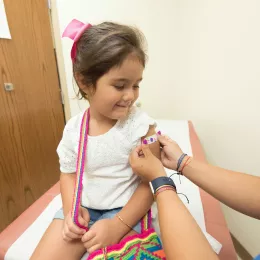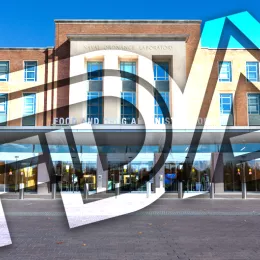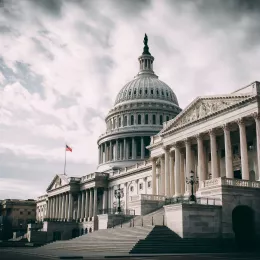Peter's Memo: Clean water is a human right
It’s hard for most of us to imagine living in a household with no running water. Yet that’s what many Americans face when they can’t pay their water bills.
In too many communities, utilities often shut off the water when people don’t pay their bills in time. Without water, you can’t flush your toilet or wash your hands, dishes, or clothes.
One reason so many people are struggling to pay: Water bills climbed at roughly double the rate of inflation from 2000 to 2021. Among the causes:
Aging water systems. Many of our water systems were built over 100 years ago and haven’t been adequately updated, so they need costly upgrades.
Climate change. Flooding caused by storms or rising sea levels can cause raw sewage to back up from outdated sewer systems into lakes, rivers, and even streets and basements. Storms can damage pipes, pumps, and wastewater treatment facilities. Drought can compel utilities to invest in increasing their capacity for storing water. Hot weather can cause harmful algal blooms that need treatment.
Private, for-profit water providers. Private companies have taken over some public water utilities, especially in areas where local governments need cash to pay off debts or upgrade their water systems. On average, private companies charge 59 percent more than public utilities, according to a 2015 survey by Food & Water Watch, a nonprofit that works to keep public water affordable for all. And private companies sometimes deliver worse service.
In contrast, some local governments have actually cut their costs by switching back from private to public water or sewer systems, according to Food & Water Watch.

Where do we go from here?
The 2021 Bipartisan Infrastructure Law contains funding for upgrading the water system as well as roads, bridges, public transit, and more. But that’s just a drop in the bucket. To fully protect our waterways and ensure that tap water in all communities is safe to drink, we need Congress to act.
What’s more, we need to end inhumane water shutoffs to households that can’t afford to pay.
During the pandemic, dozens of states temporarily banned shutoffs. Last July, the Chicago City Council voted to permanently eliminate water shutoffs when people can’t pay their bills. And Philadelphia and Los Angeles are working toward eliminating shutoffs for customers with lower incomes.
Access to clean water and sanitation is a human right, as the United Nations General Assembly declared in 2010. No one should have to go without it.
The Latest by Peter
Makary must stop the bleeding if confirmed to lead FDA
Government Accountability

Peter’s Memo: Goodbye Red 3, hello better labels
Advocacy

Mass layoffs at FDA will not make Americans healthier
Government Accountability

Trump administration firing of thousands of health agency employees will undermine food safety
Government Accountability

Stop the outbreaks of tomorrow by voting against Kennedy on Senate floor
Government Accountability

More on government accountability
Looking for missing federal agency documents? We can help
Government Accountability

Makary must stop the bleeding if confirmed to lead FDA
Government Accountability

Peter’s Memo: Goodbye Red 3, hello better labels
Advocacy

Can you trust that lab-developed test? Here’s what to know
Government Accountability
By M.M. Bailey

Date labels and food waste: Here’s what to know
Food Labeling


